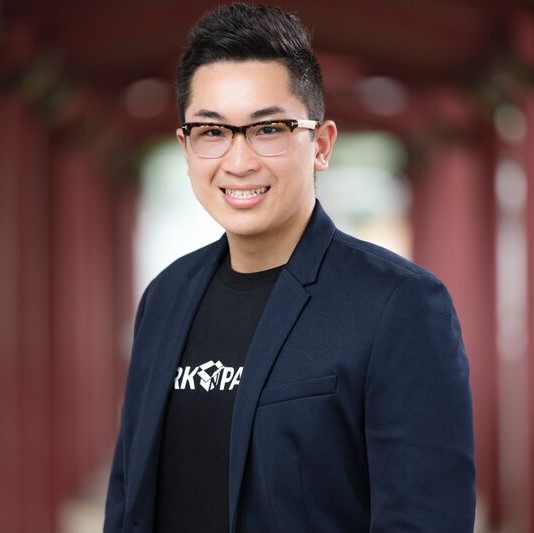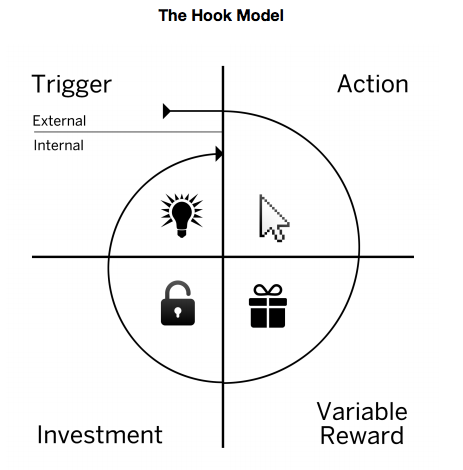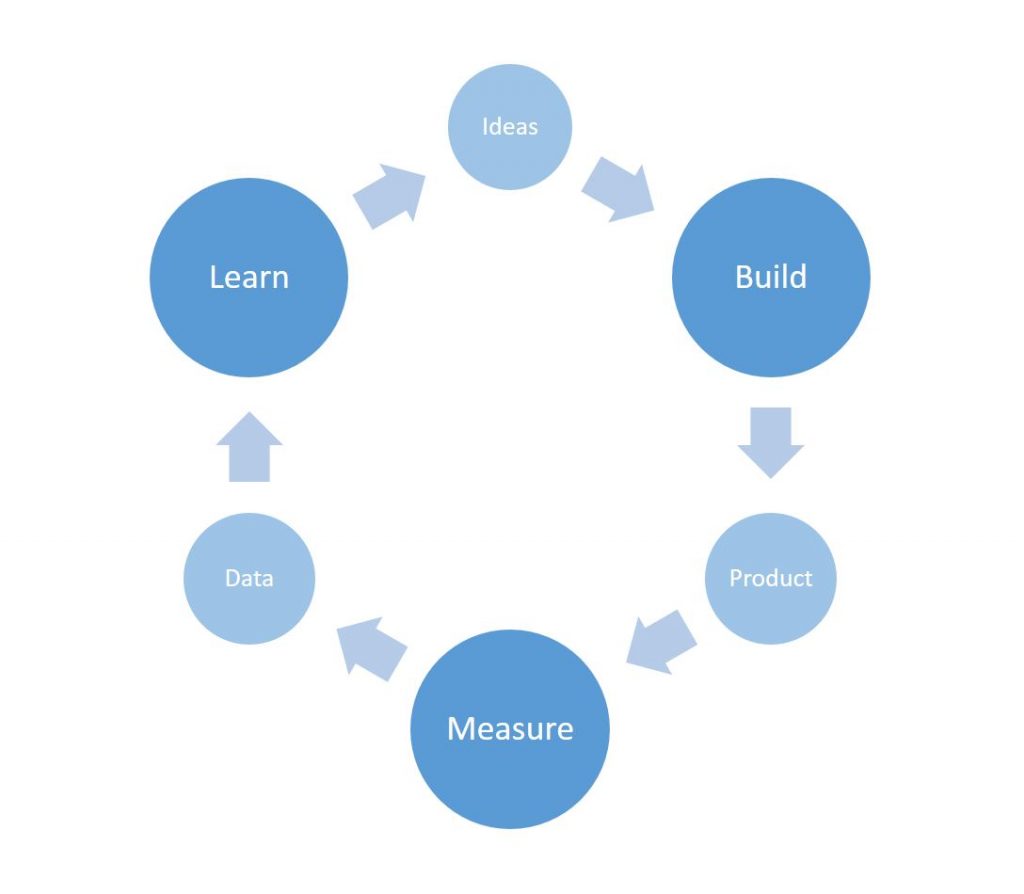Erik Cheong, Co-Founder of Park N Parcel, on How Reading Is the Best Form of Learning & Relaxation
 Erik Cheong is the co-founder of Park N Parcel, a Singapore-based logistics startup with an interesting business model and a positive impact on society.
Erik Cheong is the co-founder of Park N Parcel, a Singapore-based logistics startup with an interesting business model and a positive impact on society.
Park N Parcel is enhancing the local mailing ecosystem: they help online shoppers avoid missed orders, by making it easy and hassle-free for them to collect their deliveries. How? Through “parkers” who receive parcels (orders) on customers’ behalf. Parkers are neighbours, nearby retail stores, cafes, pharmacies and such. Shoppers can collect the orders later, at their convenience.
Park N Parcel was started in 2016 by Erik Cheong together with Bryan See Toh and Tan Gan Hong, and officially launched in January 2017 after raising $143,000 from angel investors.
Since its launch, Park N Parcel built a network of over 1,000 Parkers across Singapore.
Erik heads the company’s business operations, like partnerships, collaborations, marketing and PR. He has a bachelor’s degree in Finance and a background in investment banking. Prior to Park N Parcel, Erik started several business in the Hospitality, Food and Beverage, and e-commerce sector, with a strong believe in lean startup methodology.
Find out more about the books he recommends to anyone who wants to start their own business, how reading offers him inspiration on how he can build his own startup, how he applied the lessons he learned, but also how his business positively impacts the society.
[sc name=”audiointerview” time=”16″]
What’s your favorite book and why? Business and non-business, if possible.
(For business) – My favorite book will be The Lean Startup by Eric Ries. I will strongly recommend anyone who wants to run his or her own startup to get this book. The Lean Startup method teaches you how to drive a startup, how to steer, when to turn, and when to persevere-and grow a business with maximum acceleration. I applied the Build-Measure-Learn model into my own startup Park N Parcel, the key is to validate all your assumptions and gather market feedback of your services/product via minimum viable product (MVP). To me, this book is like a bible. I keep reading it to constantly remind myself about the lean startup approach.
 (For non-business) – Asian Godfathers by Joe Studwell: Money and Power in Hong Kong and South-East Asia, I got the signed copy. 🙂 I love history and am very curious how South East Asia economies are dominated by only fifty families whose interests range from banking to real estate, shipping to sugar, gambling to lumber etc. It is so amazing to know how all these groups of entrepreneurs overcome both political and economic challenges by turning it into opportunity, grow their business and becoming who they are today.
(For non-business) – Asian Godfathers by Joe Studwell: Money and Power in Hong Kong and South-East Asia, I got the signed copy. 🙂 I love history and am very curious how South East Asia economies are dominated by only fifty families whose interests range from banking to real estate, shipping to sugar, gambling to lumber etc. It is so amazing to know how all these groups of entrepreneurs overcome both political and economic challenges by turning it into opportunity, grow their business and becoming who they are today.

Was there a moment, specifically, when something you read in a book helped you? Can you tell me about it?
Yes of course, reading gives me inspiration on how I can help my startup using similar approach/strategies as successful startups. Previously, I was reading this book called “Hooked” by Nir Eyal (photo: NirAndFar.com).
It’s about how to build habit forming products, another must read for founders who care about driving customer engagement.
This book showed me the case study of how Facebook, Youtube & Uber turn technologies into compulsions if not fully-fledged addictions. It provided me the step by step on how I can position my product into a “painkiller” that solves real problems, instead of a “vitamin” that appeals to users’ emotional rather than functional needs.
[sc name=”subscribe”]
What books had the biggest impact on you? (perhaps changed the way you see things, dramatically changed your career path)
Alibaba – The House that Jack Ma Built by Duncan Clark. I am a big fan of Jack Ma, I have 4 different books talking about Jack. He is a top entrepreneur & visionaire, who started out as a modest English teacher and built Alibaba into one of the world’s largest companies, an e-commerce empire on which hundreds of millions of Chinese consumers depend on. I am impressed about how he overcame his humble origins and early failures to achieve massive success with Alibaba.
Being an ambitious and aspirant individual, I always wanted to start something of my own, especially to solve some of the issues I have observed in society. Hence, I decided to start my own business while being an equity dealer. My first venture was into the hospitality industry where I managed a hostel and all its operations together with my founders. After working together to manage the hostel business and acquiring knowledge in this field, we felt that our individual skills complemented one another very well.
It’s like how Jack Ma first formed his team with 17 founders. Forming a great team is important (with Bryan & Gan Hong), as a startup we constantly faced the constraint of limited resources. With limited manpower, time and funding, we must optimize our use of every scarce resource.
It is never good to work alone and I am thankful that we have the support of one another. We have the foundation of trust for a good working relationship and individually have our own strengths and weaknesses that complement one another.
In one of the interviews you gave, you said that you’re a believer in the lean startup methodology. Can you please tell us more about your experience on how you applied it to business?
 Yes I am a believer in the lean startup methodology. For the initial batch of early adopters, both users & parkers were mainly from roadshows and events, flyer distribution in neighbourhood areas, door-to-door surveys and word of mouth with minimal resources spent. We decided to roll out our MVP in 2016 before the official launch to validate the demand and measure the data and remove all assumptions we had previously made, such as pricing point, sign up rate etc.
Yes I am a believer in the lean startup methodology. For the initial batch of early adopters, both users & parkers were mainly from roadshows and events, flyer distribution in neighbourhood areas, door-to-door surveys and word of mouth with minimal resources spent. We decided to roll out our MVP in 2016 before the official launch to validate the demand and measure the data and remove all assumptions we had previously made, such as pricing point, sign up rate etc.
We relied heavily on the surveys to obtain feedback about our idea, which we felt were important because ultimately, they would be the ones utilizing our platform. For example, why is the Park N Parcel platform build on web app (mobile responsive) and not in iOS or Android? The reason is simple, we realized our parkers with older age have resistance in downloading the app due to long login ID & password. We want to make it easier for our user & parker, by allowing them to go directly to our platform by opening up Safari / Internet Explorer / Chrome with ParknParcel.com.sg.
Rather then going for traditional & expensive marketing channel such as Newspaper & TV. We decided to grow a stronger presence on social media platforms such as Facebook and Instagram. At the same time, leveraged on influence and bloggers to share about our service with their personal experience. These have helped us tremendously by boosting Park N Parcel’s visibility and adding credibility.
One of the things I found interesting about Park N Parcel’s business idea was the potential positive impact on society, especially aging population, as it’s a way for them to earn extra income. Were they open to the idea? What were your challenges with convincing first “parkers” to get involved?
When we first started with 100 Parkers, we had a percentage of 50% residentials, which consist of housewives, retirees, students and home based business owners. The other half comprises of commercial businesses that includes cafés, mini marts and retail stores in shopping malls.
For residential Parkers, who are interested in earning an additional passive income for each successful parcel delivered, they will earn $1 per parcel. This job is ideal for people who are usually home to receive the parcels. For commercial Parkers, they are more interested in the footfall of their premise. This works more as a collaboration for them as people who collect their parcels at their premises can potentially be a sale for these commercial Parkers. Thus, this is a win-win situation for both parties.
We believe there will be more Parkers joining us in the times to come because similarly to Grab and Uber, these are on-demand services that provide the convenience. As for PNP, it provides convenience when it comes to online shopping.
With more Parkers, this will cause a ripple effect on the users as well as with more Parkers covering more parts of Singapore, the distance between a Parker and a user will most likely be shorter. Thus, users will be more inclined to use our service knowing that there is a Parker situated near his/her premise.
The fact that Park N Parcel is using neighbours as parcel collection points is constantly faced with skepticism because some might feel that it is risky to receive unknown parcels and etc. In the beginning, due to such skepticism, we were searching for constant validation through a few testbed neighbourhood estates such as Punggol, Sengkang and Serangoon.
What books would you recommend to youngsters interested in your professional path? Why? (no number limit here)
All of the books I mentioned in questions 1-3 (especially The Lean Startup, Hooked & Alibaba).
The other recommendations:
– Venture Deals: Be Smarter Than Your Lawyer and Venture Capitalist by Brad Feld and Jason Mendelson
(One of the biggest challenges for startups is fund raising. Learn and know what the investors are thinking and what they looking for.)
– Anything You Want: 40 Lessons For A New Kind Of Entrepreneur by Derek Sivers
(Easy to read and compact book. Talks about about living life, appreciating enough, and doing what matters. Most importantly, do not be afraid to step out of your comfort zone and take risks! Everyone has great ideas but success only comes through action.)
– The Airbnb Story by Leigh Gallaher
(Remarkable behind-the-scenes story of the creation and growth of Airbnb, an online lodging platform that has become the largest provider of accommodations in the world. Talk about how three guys come out with a simple idea to disrupt a traditional industry with their creative and unique strategy.)
– Delivering Happiness: A Path to Profits, Passion, and Purpose by Tony Hsieh
(In this book, it shows how serial entrepreneur Tony shares the different lessons he has learned in business and life, from starting a worm farm to running a pizza business, through LinkExchange [acquired by Microsoft for $265 million], and becoming a venture capitalist before Zappos. Key takeaway: Focus on company culture & help employees grow both personally and professionally. )
– Contagious: Why Things Catch On by Jonah Berger
(Explains why certain products and ideas become popular while others fail. It reveals the secret science behind word-of-mouth and social transmission. Discover how six basic principles drive all sorts of things to become contagious, from consumer products and policy initiatives to workplace rumors and YouTube videos.)
– The Sharing Economy by Arun Sundararajan & WE-Commerce by Billee Howard
(I will only recommend you read these books if you are into collaborative & shared resources startups. They talk about the rise of crowd based capitalism – a new way of organizing economic activity that may supplant the traditional corporate-centered model. They allow you to make quick comparisons & brainstorm ideas with the existing peer-to-peer platforms such as Airbnb, Uber, TaskRabbit, China’s Didi Kuaidi, and India’s Ola.)
I’m interested in finding out more about your reading habits. How often do you read? In what format?
I will try to read at least once per week. Usually I will begin with the business & investment weekly newspaper – The Edge Singapore. I keep myself updated with the latest global & local business/startup trends, followed by books related to entrepreneurs, startups and self-improvement.
I like to read physical books more than E-books because I prefer “the touch & feel” experience that comes with turning pages and seeing permanent words emblazoned on paper. At the same time, I love to collect things. To me, books are not just for accessing information, but they are also decorative objects. Another negative experience of E-books is the strong backlight from the tablet, constant staring for a few hours will make my eyes easily tired and slow down my reading.
How do you make time for reading?
Every Sunday is my “Book & Coffee” time. Besides the book, café hopping with great coffee is the true motivation for my reading. Usually after lunch, I will look for a nice café with my book nearby to start my reading while waiting for my wife to complete her shopping. 🙂 The longer she shops, the longer I get to read!
For me, reading is the best form of relaxation, hence Sunday is a perfect timing to reduce stress and open up to new ideas and inspirations from books.
Do you take notes or have any other technique for conquering the torrent of information?
Yes, I do take notes each time after I read. In order for me to conquer the torrent of information from the books, I will usually break it down into two steps.
Firstly, at the end of each chapter, I write a few bullet points that summarize what I had read and ask myself questions on how I can apply it in my life/startups.
Secondly, after I completed reading the book, I will go through all the notes and write a quick summary of the key takeaways from the book.
Sometimes during my reading, if I notice any interesting quotes or useful findings, I will take pictures using my phone and keep them for future references.
How do you choose what books to read next?
Usually I will visit Kinokuniya (Main Store) at the Takashimaya Orchard once per month, to check out the latest book release or the top recommended shelves. Alternatively, I will receive friend’s recommendation for good books. In fact, you can easily get recommendation from online platforms.
Do you prioritize the books recommended by certain people? Is there anyone that you consider a book-recommendations guru?
Yes of course. I will consider the NUS Enterprise Community Manager – Agustiadi as my book recommendations guru. We have a group chat lead by him with other startup founders in the Block 71 community to discuss about good books and do book exchange among us.
Every first week of the month, we will attend a founders breakfast organized by NUS Enterprise. During the breakfast session, we will cover different topic of the challenges startup commonly face and take this opportunity to share the books we mentioned.
Last question: what book are you currently reading and what are you expecting to gain from it?
Currently I am reading Eric Ries’ new book – The Startup Way: How Modern Companies Use Entrepreneurial Management to Transform Culture and Drive Long-Term Growth. This book is filled with in-the-field stories, insights, and tools. Eric lays out a system of entrepreneurial management that leads organizations of all sizes and from every industry to sustainable growth and long-term impact. So far, I feel this book is focused more on multi-national corporations (MNC) rather than startups, it basically talks about embedding startups within corporate.
Links where you can follow Erik Cheong or find out more about his projects:
- Park n Parcel
- Erik’s LinkedIn profile
- Never Miss A Delivery Again – This Startup Is Turning Your Neighbours Into Self-Collection Points
- Why Singapore Shoppers May Never Miss a Delivery
All books mentioned by Erik Cheong in this interview:
- The Lean Startup by Eric Ries
- Asian Godfathers: Money and Power in Hong Kong and Southeast Asia by Joe Studwell
- Hooked: How to Build Habit-Forming Products by Nir Eyal
- Alibaba – The House That Jack Ma Built by Duncan Clark
- Venture Deals: Be Smarter Than Your Lawyer and Venture Capitalist by Brad Feld, Jason Mendelson
- Anything You Want: 40 Lessons for a New Kind of Entrepreneur by Derek Sivers
- The Airbnb Story: How Three Ordinary Guys Disrupted an Industry, Made Billions . . . and Created Plenty of Controversy by Leigh Gallaher
- Delivering Happiness: A Path to Profits, Passion, and Purpose by Tony Hsieh
- Contagious: Why Things Catch On by Jonah Berger
- The Sharing Economy: The End of Employment and the Rise of Crowd-Based Capitalism by Arun Sundararajan
- We-Commerce: How to Create, Collaborate, and Succeed in the Sharing Economy by Billee Howard
- The Startup Way by Eric Ries
You can also listen to our podcast about The Lean Startup methodology and how we’re applying it at The CEO Library.